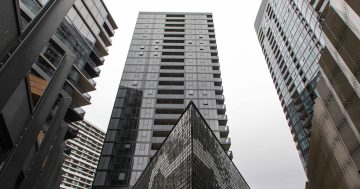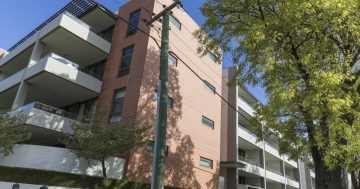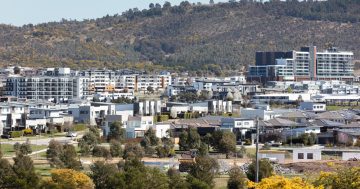
Weston Creek is leading the way in the ACT property prices. Photo: Region Media.
Despite dire predictions of the largest economic contraction in 80 years, the ACT economy is faring considerably better than many other states and regions, and unemployment has actually fallen in the Territory this year despite disruptions due to COVID-19.
In figures released by the Australian Bureau of Statistics on Wednesday, the headline national unemployment rate increased to 7.5 per cent but the ACT showed an unemployment rate of 4.6 per cent.
Bendigo Bank Head of Economic and Market Research David Robertson says the unemployment figures show the ACT has fared the best in the country.
“This month’s unemployment rate of 4.6 per cent is actually down from the previous figure of 5.1 per cent.
“Interestingly, the overall employment number for the ACT has gone up; there are now 233,000 people employed in the ACT. There may be a story to tell under that number such as underemployment but, overall, there are more people employed in the ACT than there were at the start of the year.”
“The ACT is outperforming the rest of Australia,” Mr Robertson said.
The unemployment rate for NSW rate came in at 7.2 per cent, but Mr Robertson says he is most worried about Victoria, where unemployment is currently 6.8 per cent but the outlook there is not positive following the introduction of stage 4 restrictions.
Beyond the obvious health implications of the pandemic, Mr Robertson says the impacts nationally are primarily being felt in the job and property markets, with the tourism sector the most impacted.
“There is no getting around it, the financial impact of COVID-19 is nationally devastating, but it is affecting different regions in different ways and the ACT is pretty much leading the field.”
Mr Robertson admits there were a lot of negative predictions made for property prices but for the period March through to July, the ACT has seen actually seen an average price rise of 1.3 per cent, with prices now sitting at a record high.
“The ACT is an exception here. Some states and regions are just hanging in there, but most markets have fallen, especially Sydney which is down 1.7 per cent and Melbourne which is down 3.5 per cent during the COVID-19 period.”
Mr Robertson says there are always variations in price trends suburb to suburb, but Weston Creek is leading the way in the ACT with the price of an average dwelling up 12 per cent for the period.
“Broadly speaking, we are seeing consumer preferences move away from high-density properties to those that offer a lifestyle with more space and this trend is likely to continue. COVID-19 has forced us to work from home and highlighted that living away from the city centres is indeed a viable option.”
Mr Robertson sees an emerging trend towards regional hubs and smaller cities as consumers focus on living in environmentally sustainable locations.
“This is a definite win for the ACT here. Of course, housing affordability will continue to be an issue but you would always prefer a strong steady market to a falling one,” he added.
At its meeting last week, the RBA board held official interest rates at their record low of 0.25 per cent.
“We are probably looking at two years before they go up again. The RBA doesn’t want to go any lower but they have no intention of putting them up until the jobs market improves. The flipside of this is less income for self-funded retirees, but they will have to keep rates here until we have more evidence of a sustainable recovery.”
Mr Robertson says it is pleasing that the mix of recent data is showing the downturn is being felt less in the ACT than elsewhere and explained that sectors such as construction, education, health care, and public administration, while not recession-proof, are resilient.
“It is certainly still difficult for some parts of the economy and we still don’t know the longer-term effects of the border closures. The challenge for business is how they can best adapt to the conditions. Fingers crossed the COVID-19 numbers improve, we all stay safe and the entire economy will improve.”

Bendigo Bank Head of Economic and Market Research David Robertson says the unemployment figures show the ACT has fared the best in the country. Photo: Supplied.
To find your local Community Bank branch visit Bendigo Bank.





















